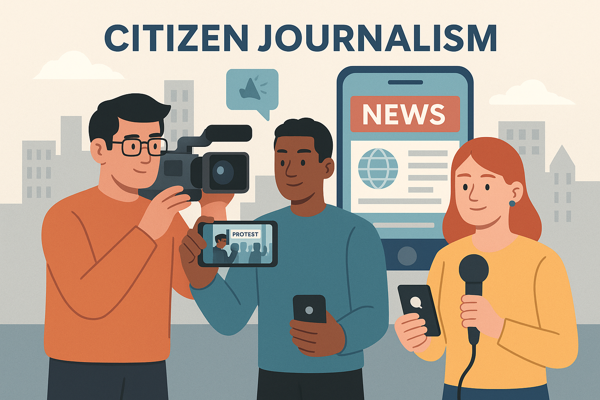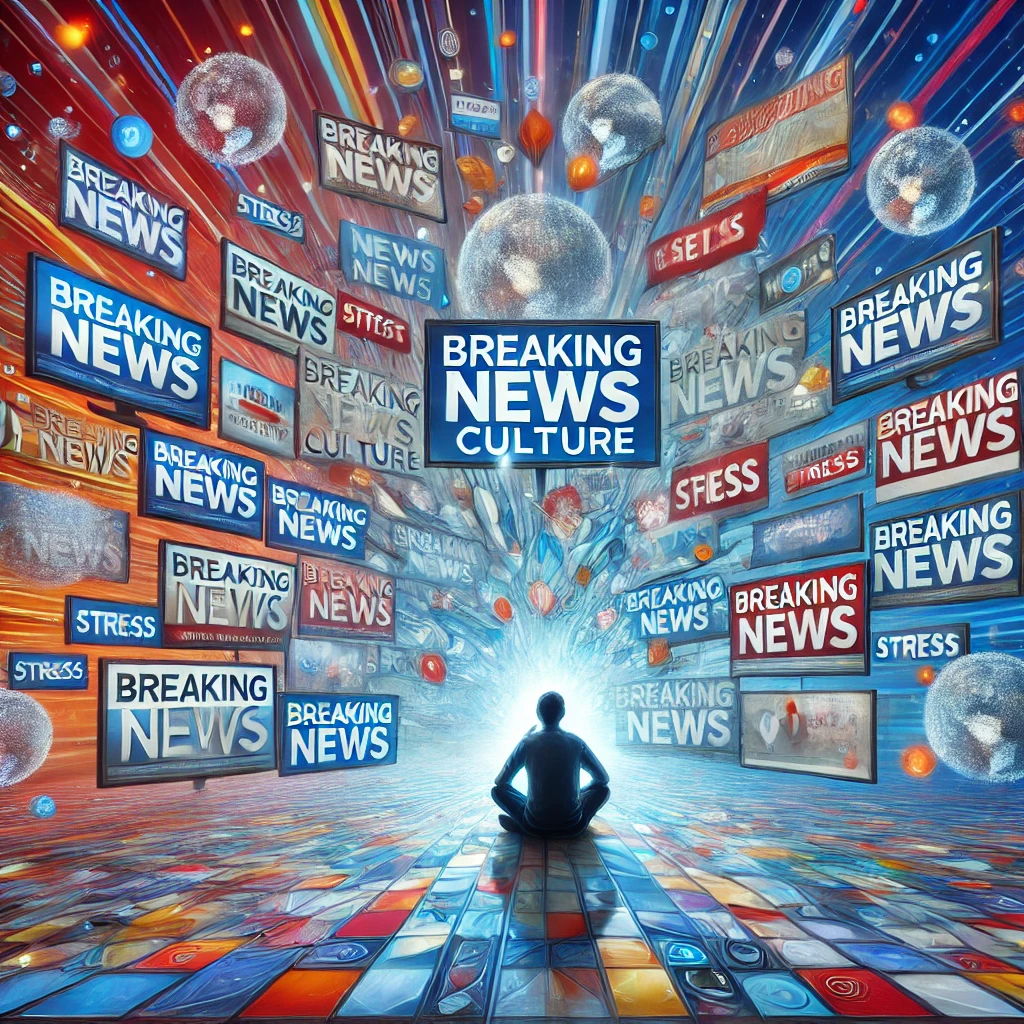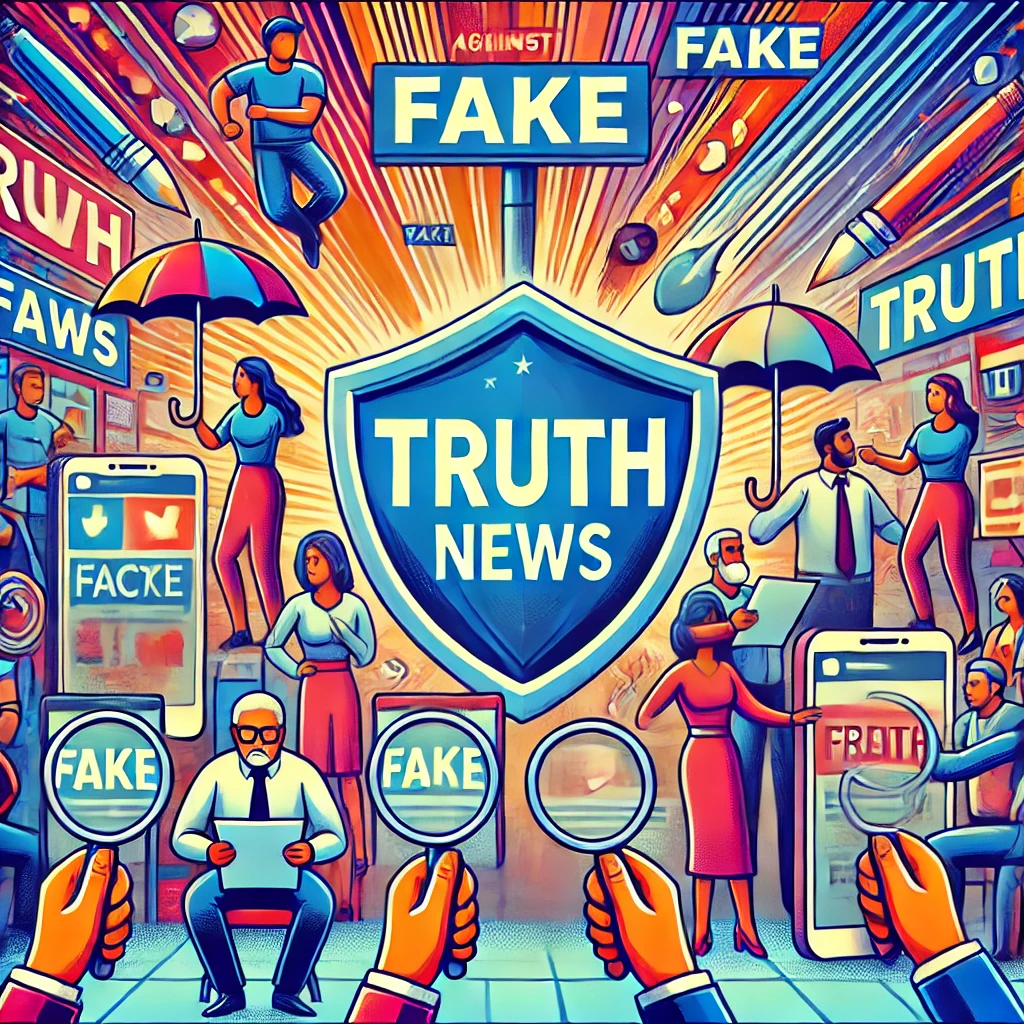Breaking News Culture: The Psychology of Instant Updates
In the fast-paced digital world we live in, breaking news has become a staple of our daily routine. With smartphones, social media, and 24-hour news channels, we are constantly informed almost instantly. This shift has changed how we get information, but it also brings up important questions about its effects on our minds and society.
The Rise of Breaking News Culture
The idea of breaking news isn’t a new one. In the past, urgent updates came through special newspaper editions or radio bulletins. However, the internet and digital media have turned breaking news into a nonstop cycle.
Key Drivers:
- Technology: Push notifications, live blogs, and social media have made it possible to get updates instantly.
- Consumer Demand: People now expect real-time coverage of events like elections and natural disasters.
- Media Competition: News outlets race to be the first to report stories, sometimes prioritizing speed over accuracy.
The Psychology Behind Instant Updates
Breaking news culture taps into fundamental aspects of human psychology, affecting how we think, feel, and act.
The Need for Certainty
Humans naturally seek information during uncertain times. Breaking news gives a sense of clarity, even if it’s not complete. For example, during crises like the COVID-19 pandemic, people frequently checked for updates to ease their anxiety.
FOMO (Fear of Missing Out)
Social media heightens FOMO, making users feel they must stay informed. Missing out on trending topics can lead to feelings of exclusion, especially when others are discussing them.
Dopamine Rush
A news notification triggers a release of dopamine, the brain’s reward chemical. This creates a habit of checking updates often, as each notification feels like a small reward.
Catastrophizing and Anxiety
Constant alarming headlines can increase anxiety. The focus on sensationalism in breaking news can make the world seem more dangerous than it is.
Confirmation Bias
Breaking news often strengthens existing beliefs. People usually consume updates from sources that match their views, which can deepen societal divides.
The Impact on Society
The culture of breaking news affects more than just individual psychology; it also influences society and public discourse.
Erosion of Trust in Media
The rush to be first can lead to mistakes. When errors are corrected later, the initial damage is done, undermining trust in news organizations.
Polarization
Incomplete or biased updates can heighten tensions between groups. Social media algorithms make this worse by promoting content that sparks strong emotional reactions.
Attention Economy
News outlets and social platforms benefit from user engagement. Sensational headlines and constant updates are designed to grab attention, often at the cost of in-depth journalism.
Desensitization
Constant exposure to tragic or shocking news can lead to emotional numbness. Frequent reports of violence or natural disasters may reduce empathy over time.
Misinformation
The urgency of breaking news can spread unverified information. False reports or misleading stories can gain traction before corrections are made.
Benefits of Breaking News Culture
Despite its challenges, the culture of instant updates also offers significant benefits:
Timely Awareness
Real-time updates are crucial during emergencies like natural disasters or public health crises. They enable quick decision-making and informed responses.
Global Connectivity
Breaking news promotes a sense of global awareness, connecting people worldwide through shared experiences.
Empowerment
Getting instant updates can give people the information they need to act, whether it’s voting in an election or helping out during a disaster.
Accountability
Live coverage makes sure those in power are held responsible by revealing misconduct and starting public discussions.
Strategies to Navigate Breaking News Culture
To reduce the negative impacts, both people and media outlets can try these methods:
Mindful Consumption
Set specific times to check the news and avoid constantly looking at notifications.
Verify Before Sharing
Make sure the news is from a credible source before sharing it. False information can spread quickly and make situations worse.
Media Literacy
Teach people how news is made so they can tell the difference between trustworthy reporting and exaggerated stories.
Slow Journalism
News organizations should focus on getting the facts right and providing context rather than being the first to report. Detailed follow-ups can help rebuild public trust.
Mental Health Awareness
Understand that always seeing disturbing news can affect your emotions. Take breaks from the media to take care of yourself.
The Future of Breaking News Culture
As tech advances, breaking news will become even faster and more immersive. Tools like augmented reality and artificial intelligence might change how we get and consume updates. But, this progress should be balanced with ethical standards, focusing on accuracy, empathy, and the audience’s well-being.
In a fast-paced world, it’s important to remember that not all news needs immediate attention. A more thoughtful way of consuming news can help society benefit from breaking news while reducing its negative effects.
Breaking news culture shows our need for connection, understanding, and control in a chaotic world. Despite its issues, it has the power to inform, bring people together, and empower if handled with care and responsibility.




Post Comment